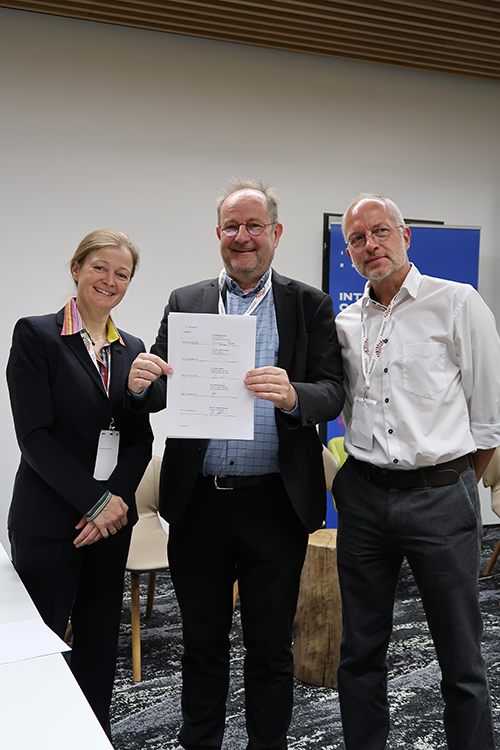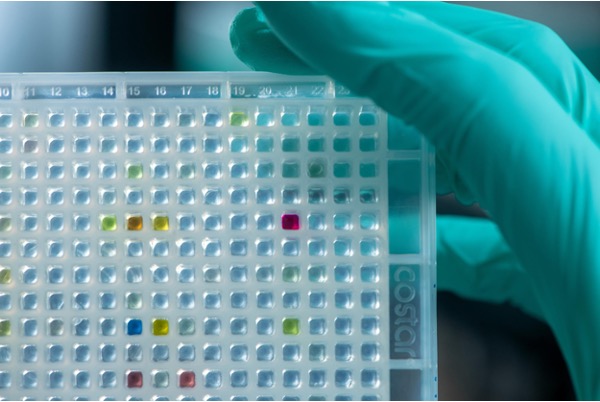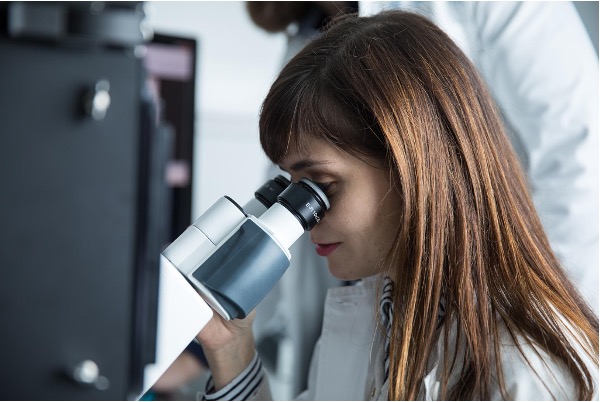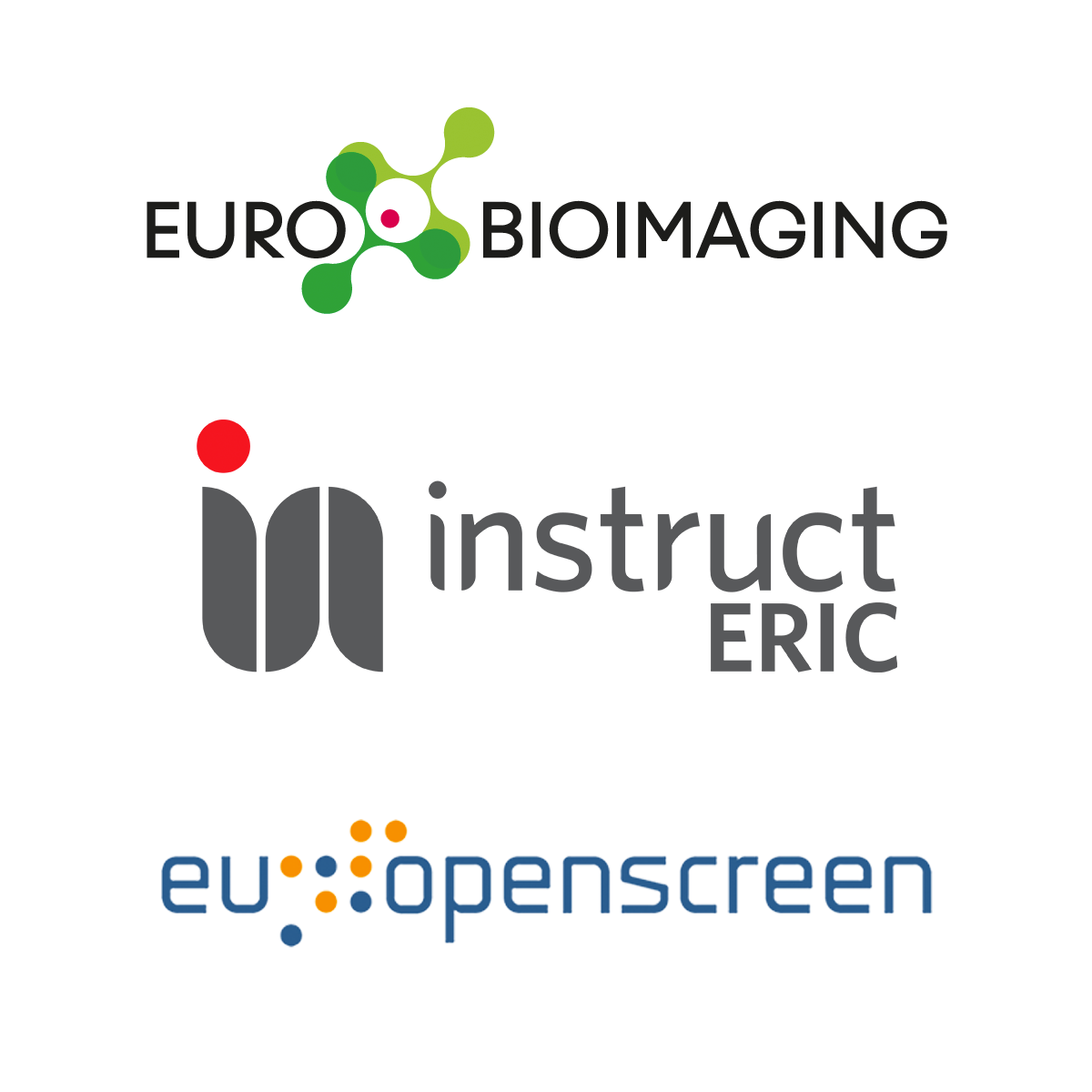08-Nov-2022
A new, promising collaborative agreement among top-class life science research infrastructures was made official during the International Conference on Research Infrastructures (ICRI 2022) in Brno, Czech Republic, on October 21, 2022.
This trilateral Memorandum of Understanding between Instruct-ERIC, EU-OPENSCREEN ERIC and Euro-BioImaging ERIC is designed to benefit the life science research community by building common pipelines for user access, and joining forces in training, external communication, FAIR data management, and funding opportunities.
A new collaboration to support user projects
Today’s scientists work in a complex world where multidisciplinary/cross-disciplinary studies applying multiple complex and cost-intensive technologies are often required. In parallel, research institutes are increasingly specialised, investing in unique technologies and building up powerful expertise over many years. By building strong and reliable partnerships and common service pipelines, European research infrastructure consortia (ERICs) will support the innovative, cutting-edge research projects of tomorrow. That is why the ERICs Euro-BioImaging ERIC, Instruct-ERIC and EU-OPENSCREEN initiate a collaboration to support molecular life science research. Together, they will unite efforts to maintain high-quality services, offer user and staff training and increase the visibility of their common RI services towards scientific communities and funders, thus contributing to their long-term sustainability and supporting scientific excellence within the European Research Area.
ERIC stands for European Research Infrastructure Consortium, and refers to a specific legal form that facilitates the establishment and operation of Research Infrastructures with European interest, on a not-for-profit basis. ERICs are funded by subscription from member countries and governed by member country representatives.
Common goals
EU-OPENSCREEN, Instruct and Euro-BioImaging are all European distributed research infrastructures. Such infrastructures have networks of national partners across Europe and provide resources and services in support of research and foster innovation. They have all been awarded the legal status of an ERIC by the European Commission (EC).
The three ERICs have successfully collaborated in the past, in particular in the European Commission-funded projects BioMedBridges, CORBEL, RI-VIS, EOSC-Life as well as the ongoing RI services ISIDORe project. The new agreement will strengthen their existing collaboration and pave the way for extended outreach and synergies, project funding, training, user access and data management.

MOU Signature: Antje Keppler (Left, Euro-BioImaging), Harald Schwalbe (Centre, Instruct-ERIC), Wolfgang Fecke (Right, EU-OPENSCREEN)
Enforcing strong collaborations
The International Conference on Research Infrastructures, ICRI 2022, was the perfect place to publicly sign this agreement between research infrastructures.
“Continuing to deepen our interactions is a next logical step,” says Wolfgang Fecke, Director of EU-OPENSCREEN. “We learned in discussions with our scientific collaborators that they can benefit tremendously from utilising the expert knowledge and technical platforms at Instruct and Euro-BioImaging.”
“Working towards common user access pipelines, communicating with one voice to users but also to funders, and working together to bring the very rich datasets we produce to the public space are just some of the ways we will continue to work together,” explains Euro-BioImaging Bio-Hub Director, Antje Keppler.
“There is an enormous potential for synergy between our three ERICs, as our scientific focus is very similar, allowing for interdisciplinary science to be conducted. Synergistic research will help train the next generation of scientists to address future challenges” says Harald Schwalbe, Director of Instruct-ERIC.
Perspectives for the future
While each of these individual research infrastructures has its own value and importance in its own unique field of expertise, being embedded in a larger scope of technologies and services offered by complementary ESFRI Life Science research infrastructures (RI) across Europe will clearly enhance the impact of each RI and contribute to the long-term sustainability of individual research infrastructures and science as a whole.
 About Instruct-ERIC
About Instruct-ERIC
Instruct-ERIC is a pan-European distributed research infrastructure making high-end technologies and methods in structural biology available to users. Instruct-ERIC is funded by subscription from member countries and governed by member country representatives. Instruct-ERIC comprises 14 Member Countries: Belgium, Czech Republic, EMBL, Finland, France, Israel, Italy, Latvia, Lithuania, Netherlands, Portugal, Slovakia, Spain and United Kingdom, and one Observer Country: Greece. Through its specialist research centres in Europe, Instruct-ERIC offers funded research visits, training, internships and R&D awards.
 About EU-OPENSCREEN ERIC
About EU-OPENSCREEN ERIC
EU-OPENSCREEN is a not-for-profit ERIC organisation for chemical biology and early drug discovery.
EU-OPENSCREEN supports all stages of a chemical tool development project, including assay adaptation, high-throughput screening, and chemical optimisation of the ‘hit’ compounds.
EU-OPENSCREEN operates an open-access database and a unique, common compound collection. The main library, the European Chemical Biology Library (ECBL), consists of over 100.000 compounds.
EU-OPENSCREEN has affiliated high-throughput screening and medicinal chemistry facilities at 29 partner sites in 10 European countries. These partner facilities provide researchers with access to cutting-edge technologies to develop their own tool compounds.
EU-OPENSCREEN aims to support global scientific and economic competitiveness of Europe through delivering public health benefits. In the future, we will act as an innovation accelerator for new start-ups.
 About Euro-BioImaging ERIC
About Euro-BioImaging ERIC
Euro-BioImaging is the European landmark research infrastructure for biological and biomedical imaging as recognised by the European Strategy Forum on Research Infrastructures (ESFRI). Through Euro-BioImaging, life scientists can access imaging instruments, expertise, training opportunities and data management services that they might not find at their home institutions or among their collaboration partners. All scientists, regardless of their affiliation, area of expertise or field of activity can benefit from these pan-European open access services, which are provided with high quality standards by leading imaging facilities.
